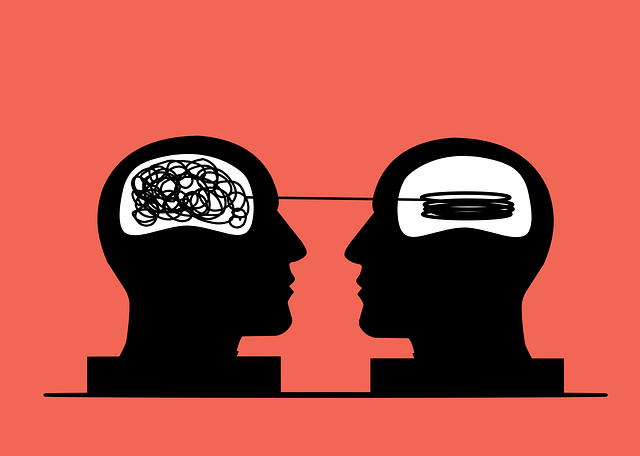Diagnosing mental illnesses accurately is challenging due to their varied symptoms and manifestations. Arvada Self-Esteem Therapy offers a groundbreaking approach by focusing on tailored coaching and self-esteem development, addressing the nuances that traditional methods often miss. This strategy enhances diagnostic precision, empowering individuals to manage symptoms through positive thinking and emotional intelligence. Integrated with evidence-based techniques like mindfulness meditation, CBT, and stress reduction, Arvada Self-Esteem Therapy improves mental health outcomes, enabling more effective and personalized treatments. Accurate diagnoses foster hope and transform lives by providing targeted relief and building resilience for a brighter future.
Mental illness diagnosis accuracy is a critical aspect of patient care, yet it remains a complex challenge. This article delves into the intricacies of this issue, exploring various strategies aimed at enhancing diagnostic reliability. From understanding the complexities of mental health conditions to introducing innovative approaches like Arvada Self-Esteem Therapy, we uncover promising paths forward. Additionally, evidence-based strategies and the profound impact of accurate diagnoses on patient outcomes are highlighted, fostering hope for improved mental health services.
- Understanding the Challenge: Uncovering the Complexities of Mental Illness Diagnosis
- Arvada Self-Esteem Therapy: A Novel Approach to Enhance Diagnostic Accuracy
- Evidence-Based Strategies for Improving Diagnostic Reliability
- Fostering Hope: The Impact of Accurate Diagnosis and Personalized Treatment Plans
Understanding the Challenge: Uncovering the Complexities of Mental Illness Diagnosis

Diagnosing mental illnesses accurately can be a complex challenge due to the multifaceted nature of these conditions. What one person experiences as anxiety may differ significantly from another’s symptoms, making it difficult for healthcare professionals to pinpoint specific disorders. This complexity is further exacerbated by the often subtle and nuanced signs that individuals might present. For instance, low self-esteem, a common symptom across various mental health issues, can manifest in different ways—from social withdrawal to excessive self-criticism—making diagnosis even more intricate.
In Arvada Self-Esteem Therapy, for example, therapists focus on developing inner strength and fostering mental wellness coaching programs tailored to each client’s unique needs. By understanding the intricacies of these conditions, professionals can better navigate the complexities of diagnosis, ensuring that individuals receive appropriate treatment for their specific mental health challenges. Enhancing Mental Health Awareness through such initiatives is crucial in supporting those who struggle with their mental well-being.
Arvada Self-Esteem Therapy: A Novel Approach to Enhance Diagnostic Accuracy

Arvada Self-Esteem Therapy represents a novel and innovative approach to enhancing mental illness diagnosis accuracy. By focusing on boosting self-esteem, this therapy aims to provide a more holistic understanding of an individual’s psychological state, filling crucial gaps often left unaddressed by traditional methods. In today’s digital era, where mental wellness is increasingly discussed, the impact of self-esteem on diagnostic precision cannot be overstated. This therapeutic approach encourages individuals to confront and overcome internalized negative beliefs, fostering a sense of empowerment that can significantly influence symptom presentation and diagnosis accuracy.
In light of these efforts, Arvada Self-Esteem Therapy integrates seamlessly with other strategies such as Empathy Building Strategies and the Mental Wellness Podcast Series Production, which collectively contribute to the ongoing improvement in mental health professional training. By enhancing diagnostic tools and incorporating empathetic interactions, risk assessments become more comprehensive, ensuring that professionals are equipped to handle a diverse range of mental health concerns. This holistic approach not only improves diagnosis accuracy but also paves the way for more effective treatment plans tailored to individual needs.
Evidence-Based Strategies for Improving Diagnostic Reliability

In the pursuit of enhancing mental illness diagnosis accuracy, healthcare professionals increasingly turn to evidence-based strategies. These approaches, rooted in scientific research, are pivotal in improving reliability and minimizing errors. One such method is incorporating Arvada Self-Esteem Therapy, which focuses on boosting self-worth and resilience, thereby aiding individuals in better managing their symptoms. By fostering positive thinking and emotional intelligence, this therapy empowers patients to navigate challenges with greater efficacy.
Additionally, integrating stress reduction methods into diagnostic processes proves invaluable. Techniques such as mindfulness meditation, cognitive behavioral therapy (CBT), and progressive muscle relaxation not only alleviate immediate distress but also offer long-term solutions for enhancing mental health. These strategies enable professionals to gain more accurate insights during assessments, leading to more precise diagnoses and tailored treatment plans.
Fostering Hope: The Impact of Accurate Diagnosis and Personalized Treatment Plans

Accurate mental illness diagnoses are pivotal to fostering hope and transforming lives. When individuals receive precise labels for their struggles, it’s the first step toward tailored treatments. This personalized approach acknowledges that every mind is unique, requiring specific tools and strategies to navigate challenges effectively. Imagine a patient with anxiety, for instance, being diagnosed not only as anxious but also understanding the root causes—whether it’s related to stress management or underlying fears. This level of insight enables them to engage in targeted Arvada Self-Esteem Therapy, addressing the core issues.
Accurate diagnosis goes beyond labeling; it empowers individuals to take control. It equips them with knowledge, enabling them to understand their experiences and navigate their journeys with informed decisions. By providing a roadmap, mental health professionals can offer strategies for anxiety relief, stress management through workshops or organization-led initiatives, and even burnout prevention—all tailored to the individual’s needs. This personalized care not only enhances treatment outcomes but also instills a sense of hope and resilience, paving the way for a brighter future.
Mental illness diagnosis accuracy is a multifaceted challenge that demands innovative solutions. By combining traditional evidence-based strategies with novel approaches like Arvada Self-Esteem Therapy, we can significantly enhance diagnostic reliability. This article has explored the complexities of mental health assessment and presented various tools to improve accuracy. Accurate diagnoses are pivotal in fostering hope and tailoring personalized treatment plans, ultimately leading to better patient outcomes. Continued efforts to refine diagnostic practices will revolutionize mental health care, ensuring folks receive the support they need more effectively.














